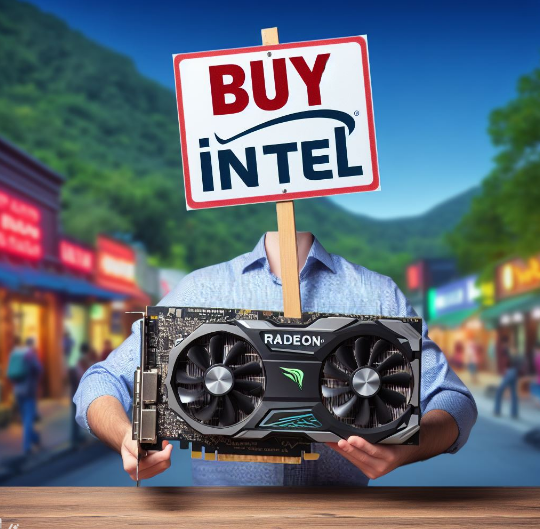China’s special graphics card RX 6750 GRE is too cheap! AMD takes action: fines, suspension of goods
Kuai Technology reported on February 21 that AMD released the RX 6750 GRE 10/12GB graphics card specifically for the Chinese mainland market in October last year. The starting prices were 2,219 yuan and 2,379 yuan respectively. However, the actual selling price quickly broke through, which made AMD can't stand it anymore.
At the end of January, AMD issued an internal notice to AIB brand manufacturers and dealers, requiring that the prices of RX 6750 GRE 10/12GB must be strictly controlled, with the lowest prices being 2,149 yuan and 2,379 yuan respectively.
However, the actual selling price of both is lower than this bottom line. The RX 6750 GRE 12GB can now be purchased for only 2,249 yuan.
Seeing that it still couldn't control it, AMD immediately took stricter measures and began to impose penalties.
It is reported that in the recent implementation, if AMD finds that the online sales price of RX 6750 GRE is lower than the minimum price, it will directly find the brand dealer and impose certain penalties.
Specifically, the first, second, and third times found will result in a fine of 500 yuan per card.
If it is discovered for the fourth time, a fine of 1,000 yuan will be imposed and the AIB brand owner will be required to directly stop the product.
It has to be said that AMD still attaches great importance to the RX 6750 GRE specially supplied to China. In order to maintain their market position, AMD has not allowed the newly released RX 7600 XT to enter the Chinese market.
https://m-mydrivers-com.translate.g...?ref&_x_tr_sl=auto&_x_tr_tl=en&_x_tr_hl=en-GB
Kuai Technology reported on February 21 that AMD released the RX 6750 GRE 10/12GB graphics card specifically for the Chinese mainland market in October last year. The starting prices were 2,219 yuan and 2,379 yuan respectively. However, the actual selling price quickly broke through, which made AMD can't stand it anymore.
At the end of January, AMD issued an internal notice to AIB brand manufacturers and dealers, requiring that the prices of RX 6750 GRE 10/12GB must be strictly controlled, with the lowest prices being 2,149 yuan and 2,379 yuan respectively.
However, the actual selling price of both is lower than this bottom line. The RX 6750 GRE 12GB can now be purchased for only 2,249 yuan.
Seeing that it still couldn't control it, AMD immediately took stricter measures and began to impose penalties.
It is reported that in the recent implementation, if AMD finds that the online sales price of RX 6750 GRE is lower than the minimum price, it will directly find the brand dealer and impose certain penalties.
Specifically, the first, second, and third times found will result in a fine of 500 yuan per card.
If it is discovered for the fourth time, a fine of 1,000 yuan will be imposed and the AIB brand owner will be required to directly stop the product.
It has to be said that AMD still attaches great importance to the RX 6750 GRE specially supplied to China. In order to maintain their market position, AMD has not allowed the newly released RX 7600 XT to enter the Chinese market.
https://m-mydrivers-com.translate.g...?ref&_x_tr_sl=auto&_x_tr_tl=en&_x_tr_hl=en-GB
![[H]ard|Forum](/styles/hardforum/xenforo/logo_dark.png)

